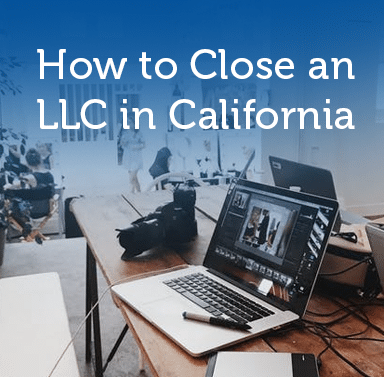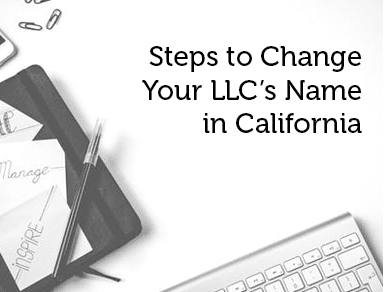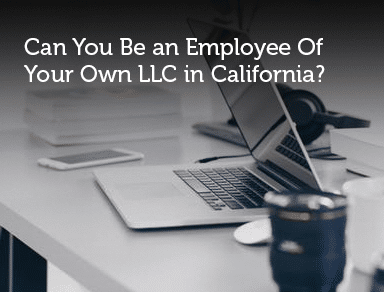More About Limited Liability Companies
Forming an LLC in California— The People’s Entity Choice for Small Businesses
Nowadays, many plan to start young in launching their businesses. As upcoming entrepreneurs, many have probably come across different business entity choices as they were taking preliminary steps starting their own business. There are many options depending upon the goals of the founder(s).
Should you use a sole proprietorship, partnership, limited liability company, or corporation?
For upcoming entrepreneurs, the apparent “simplicity” or “low cost set up” of a limited liability company (LLC) may seem like the best option.
Diving in and choosing the LLC business structure simply because of its popularity (“that’s what all of my friends have”) or because it appears to be cheaper than forming other businesses is certainly not the way to go. There is a lot to understand about the LLC business structure. Learn the basics and arm yourself with fundamental information to avoid any crucial mistakes before forming your own LLC in California.
1. What is a Limited Liability Company?
Business structure-wise, an LLC is one whose owners are called members as opposed to stockholders of a corporation. But like a corporation, an LLC has a personality separate from that of its members, which means that an LLC can own property and can incur its own debt.
Assets under the LLC’s name are assets of the LLC, so the members, in turn, own units or interest in the LLC.
2. What do I own?
Assets held in the LLC’s name are assets owned by the LLC. The members, in turn, own units or membership interests expressed in terms of a percentage in the LLC. For example, you could have an LLC with 2 members. Each owns 1,000 units. In this example, each owner would have a 50% membership interest.
3. Why Do Entrepreneurs in California Opt to Form an LLC?
Why upcoming entrepreneurs decide on forming an LLC in California includes 3 main uses plus tax benefits. All of these uses are possible in one project.
The first and by far the most common use of LLCs is to conduct businesses on behalf of their owners.
The second is to hold the assets of operating businesses and thus to protect these businesses from third-party claims. The owners and managers of every operating business that has valuable business assets should consider holding these assets in a separate holding company LLC to achieve this purpose.
The third is to hold personal and family assets, both for asset protection and to provide for minority discounts and other potentially valuable estate planning discounts.
Tax Benefits of Forming an LLC in California
A limited liability company is a ‘pass through’ entity for purposes of taxation. This means that an LLC does not pay corporate taxes whether it’s a single or multi-member LLC; corporate taxes do not apply to LLCs. The net income of the LLC is distributed to the members, and each member pays his own tax.

4. How Can One Become a Member of an Existing LLC?
In order to be a member of an LLC, you must make a “contribution” to something of value. Such contributions can be assets, cash, or non-cash items like land or business equipment. A member can also contribute industry, services, or skills that are essential to the business.
Ther contribution will determine the interest in the LLC and in return, determine the share in the LLC profits unless there are negotiated alternative arrangements regarding profit distribution with the other members.
5. What is the Difference between a Single-Member LLC and a Multi-Member LLC?
As the name would suggest, the major difference between the SMLLC – Single-Member LLC- and the MMLC – Multi-Member LLC –is the number of member(s) each has in ownership.
Another big difference between a Single-Member LLC and a Multi-Member LLC is in how they are taxed.
Single-Member LLCs
For tax purposes, a single-member LLC is considered a disregarded entity. This means that the income from the business will be subject to tax depending upon the tax classification of the owner If the owners an individual, then the income from the LLC will be flowed through to the individual and be taxed as a sole proprietorship. The profits and losses will be reported on a form called Form 1040 Schedule C.
If the member is a corporation, then the income from the LLC would be flowed through to the tax return of the corporation.
Your LLC won’t pay income taxes but will be responsible for the annual minimum franchise tax fee and gross receipts fees depending on the earnings of the LLC.
Multi-Member LLCs
In the case of Multi-Member LLCs, the default classification for taxation is as a partnership. An IRS Form 1065 Partnership Return should be filed when filing taxes. Your LLC will still have no tax liability (excluding the minimum franchise tax fees and gross receipts fees) and you and the other members will pay the tax on the net income of each of your own personal tax returns.
6. What are the Steps to Follow in Forming an LLC in California?
a)
First Determine the Name of Your Company
The first step in forming an LLC in California is to come up with a name for your company. You can check by going to the California Secretary of State website to see if your desired name is available and not taken by another company.
Your company’s name should contain the words “limited liability company,” or the abbreviation “L.L.C.” or “LLC.” “Limited” may be abbreviated as “Ltd.”. The Secretary of State has the right to disapprove of your Articles of Organization if the LLC’s suggested name is likely to mislead the public which is why it is of utmost importance that your company’s name is not confusingly similar to another existing company.
Prohibitions for company names include words such as bank, trust, trustee, incorporated, Inc., corporation, or corp. Also, insurer or insurance company or any other words suggesting that it is in the business of issuing policies of insurance and assuming insurance risks.
b)
File the Articles of Organization with the California Secretary of State.
Next, you need to file your Articles Of Organization. The articles can be drafted in a customized format or one can use a standardized form provided by the Secretary of State.
A Form LLC-1, which is the standardized form of the Articles of Organization, can be downloaded from the website of the Secretary of State. The Limited Liability Company Act requires the following information to be in the Articles of Organization:
- A statement that the purpose of the limited liability company is to engage in any lawful act or activity
- The name of the limited liability company
- The street address of the initial designated office and the mailing address of the limited liability company if different from the street address
- The name and street address of the initial agent for service of process of the limited liability company. If a corporate agent is designated, only the name of the agent shall be set forth.
- If the limited liability company is to be manager-managed, the articles of the organization shall contain a statement to that effect.
- If the limited liability company is to be managed by only one manager, the articles of the organization shall contain a statement to that effect.
This is the minimum information that must be present in the Articles of Organization. It is advisable to pay close attention to every detail to prevent any delay or refusal to file by the California Secretary of State.
c)
Obtain an Employer Identification Number (EIN) for Your LLC
The last step in forming an LLC in California is to obtain an Employer Identification Number or EIN from the Internal Revenue Service.
To do this, you must have a valid Tax Identification Number.
What is an EIN?
The EIN, like a Social Security Number, is what the IRS uses to identify your LLC. It is better known as an employer identification number. EINs are required for business structures like corporations and partnerships. If the limited liability company is owned by an
individual, the individual may choose to use their own personal Social Security number or obtain a separate EIN number for the LLC.
When should you file your EIN?
It is recommended to apply for the EIN early in the formation process. The EIN, and the supporting documentation, is one of the numbers that will be required by a bank when opening up a bank account for the new limited liability company.
Where to apply for an EIN?
Those who intend to form an LLC in California may apply for an EIN online through the IRS website. A valid individual Tax Identification Number is required when applying for an EIN.
d)
Prepare an Operation Agreement Before Forming an LLC in California
An operating agreement is the agreement between members of an LLC and the LLC itself which administers:
- The members’ relations
- the rights and duties of a member and the capacity of a manager
- the activities of the limited liability company and the conduct of those activities, and
- many other things including penalties imposed for erring members.
It serves as a manual or guide between members of an LLC to follow during the operation of the company. Although it is not required by state law, it is still advisable to have a lawyer draft one for your company to ensure a smooth flow with regard to your business operation.
Operating agreements vary from one another depending on each LLC and the goals of the members. Some of the information that should be present are: the interests of each member, the contribution of each member, the profit and loss distribution between members, the voting requirement of the LLC, the management, the transfer of interest, the buyout agreement between each and every member, and the dissolution of the LLC. This information should cover enough ground to keep the LLC running smoothly and free from chaos.
e)
File a Statement of Information to the Secretary of State.
Before you can complete the formation of the LLC, you should file a Statement of Information with the Secretary of State. This document should include information such as the name of your LLC, the names of the managers, the contact information, and the address of your principal business office.
A Statement of Information must be filed online through the California Secretary of State’s website within ninety (90) days from filing the Articles of Incorporation and is due every year.
Learn More About the Basics and Get Tips on How to Successfully Form an LLC in California!
Starting your own business may be a daunting task. With all the highly crucial documents to be filed, it sure will take an awful lot of time if you were to commit a mistake in the middle of the process. It truly pays to learn the basics and have some fundamental knowledge before you start your own business and choose the right business structure and entity.
With Incorporation Attorney, you are ensured that you and your dream of forming an LLC in California are in good hands. With the help of our experts and professionals, we will make sure that your business will be built steadily and without a hitch. Call us now at +1 (714) 634-4838 and let a professional attend to your needs.



















